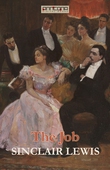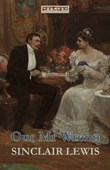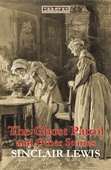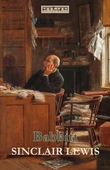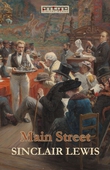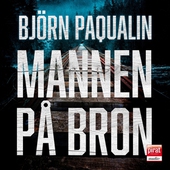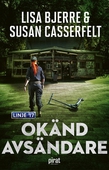
Lägg till önskelistan
Elmer Gantry e-bok
Pris
45 kr
Elmer Gantry (1927) is a satirical indictment of fundamentalist and evangelistic religion that caused a great scandal when it was first published. It was written by Nobel Prize winning American author and playwright Henry Sinclair Lewis.
Regarded as a landmark in American literature, ‘Elmer Gantry’ is a piercing portrait of a smooth-talking evangelist who rises to power within his church. But Elmer Gantry is a hypocrite and a philanderer, and his self-indulgent ways threaten to destroy every...
E-Bok
45 kr
Pris
Förlag
Saga Egmont
Utgiven
13 December 2022
Längd
352 sidor
Genrer
Romaner, Skönlitteratur
Språk
English
Format
epub
Kopieringsskydd
Vattenmärkt
ISBN
9788728350560
Elmer Gantry (1927) is a satirical indictment of fundamentalist and evangelistic religion that caused a great scandal when it was first published. It was written by Nobel Prize winning American author and playwright Henry Sinclair Lewis.
Regarded as a landmark in American literature, ‘Elmer Gantry’ is a piercing portrait of a smooth-talking evangelist who rises to power within his church. But Elmer Gantry is a hypocrite and a philanderer, and his self-indulgent ways threaten to destroy everything.
The book was adapted into a 1960 film starring Burt Lancaster and Jean Simmons.
Harry Sinclair Lewis (1885 – 1951) was an American writer, playwright and social critic, who revolutionised writing in the U.S. In 1930, he became the first writer from the United States to receive the Nobel Prize in Literature.
Lewis is best known for his novels Main Street (1920), Babbitt (1922), Arrowsmith (1925), Elmer Gantry (1927), Dodsworth (1929), and It Can't Happen Here (1935). Several of his works have been adapted for cinema, most famously the film ‘Elmer Gantry’ (1960) starring Burt Lancaster and Jean Simmons.
Lewis’s novels are known for their critical views of American capitalism and materialism and their strong characterizations of modern working women.



